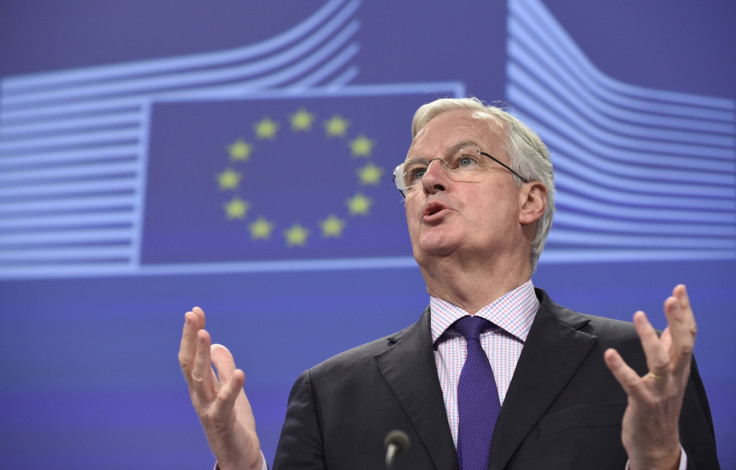EU trade negotiator says 'no deal' with Britain will lead to long queues at UK airports and ports
Michel Barnier says the failure to reach a deal would 'leave the UK worse off'.

The EU's chief Brexit negotiator has warned Britain that "no deal" on its talks to leave the European Union would mean long immigration queues at UK airports and ports.
Michel Barnier will be in charge of negotiations for the bloc after British Prime Minister Theresa May triggers Article 50 on Wednesday (29 March), kicking off two years of withdrawal negotiations.
The veteran French politician said not agreeing a deal would also lead to the disruption of a number of supply chains into the UK, "including the suspension of the delivery of nuclear material to the UK".
"It goes without saying that a no-deal scenario, while a distinct possibility, would have severe consequences for our people and our economies," Barnier wrote in a column in the Financial Times. "It would undoubtedly leave the UK worse off."
May famously said that "no deal was better than a bad deal" in a January speech, adding that if the UK could not strike a trade agreement with the EU it would be free to slash taxes to attract companies from across the world.
Barnier also set out three Brexit priorities that must be agreed before the EU and the UK could even begin trade talks. He wrote there would need to be a guarantee for the rights of 4.5 million Britons in Europe and Europeans in Britain who currently face an "uncertain future".
He added that UK commitments existing EU programmes would still need to be financed. "There is no price to pay to leave the EU but we must settle our accounts," wrote Barnier.
Ambitious free-trade deal
Britain's bill to leave the European Union would be around £50bn, European Commission president Jean-Claude Juncker said last week.
Barnier added that the new land border between Northern Ireland and Ireland should not weaken the Irish peace process. The former EC commissioner wrote: "If we cannot resolve these three significant uncertainties at an early stage, we run the risk of failure. This means agreeing on the orderly withdrawal of the UK before negotiating any future trade deal."
But Barnier added an UK-EU deal could be an "ambitious free-trade agreement, provided that it ensures fair competition and guarantees high environmental, social and consumer protection standards".
© Copyright IBTimes 2025. All rights reserved.






















